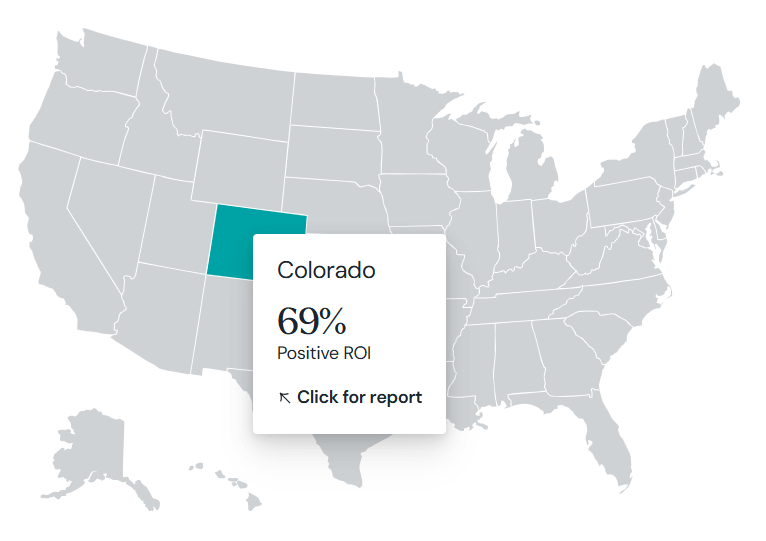In today’s rapidly changing economy, education must do more than open doors, it must lead to real opportunity.
As businesses across Colorado face talent shortages and workers navigate increasingly complex education and career choices, the question at the center of our systems is shifting: Are we preparing learners for jobs that pay and pathways that grow?
This three-part blog series explores the emerging national and state-level movement to define and scale credentials of value, those that deliver measurable outcomes like strong wages, in-demand skills, and economic mobility. We’ll break down:
- What credentials of value are and why they matter more than ever (in this post)
- How Colorado is on the path to building a transparent, data-driven credentialing system
- What must come next to ensure every learner in Colorado has access to a credential that counts
Let’s build a system where every credential is a step toward a stronger future for learners, for business, and for Colorado.
What are Credentials of Value?
Colorado’s economy presents both opportunities and challenges: businesses struggle to find skilled homegrown talent while learners face complex decisions about postsecondary and workforce pathways.
To meet the demands of a dynamic labor market and support economic mobility, Colorado must ensure its education and training systems prioritize credentials of value, those that lead to high-quality employment outcomes and stackable opportunities for advancement.

What is a credential?
A credential is the recognition of a learner’s skills, knowledge, and abilities. It can take many forms, including:
- Degrees (associate, bachelor’s, master’s, etc.)
- Certificates (short-term, industry-recognized)
- Certifications (IT certifications, professional licenses)
- Apprenticeships or other work-based learning completions
Rapid advancements in artificial intelligence and automation are transforming how work is done across nearly every sector of the economy. In this shifting landscape, it’s no longer enough to simply expand access to education, we must ensure that education leads to real opportunity.
Colorado must move beyond counting how many people enroll or complete a program and instead focus on whether those credentials translate into better jobs, higher wages, and long-term economic sustainability.
Why Credentials of Value Matter
Credentials are increasingly essential to compete in the modern economy. However, not all credentials yield the same return. Colorado must focus on high-value credentials, those that are:
- In demand from employers
- Provide strong wage and employment outcomes
- Stackable and transferable
- Accessible and equitable for all learners
- Recognized and endorsed by industry
Setting a Goal
In 2008, the Lumina Foundation set a nationwide goal that by 2025, 60 percent of Americans would have a high-quality credential. This national goal led states to set attainment goals and track their progress. Meanwhile, businesses across the country were elevating the need for learners to receive more industry-relevant training through intermediaries like Colorado Succeeds or by creating direct programming like IBM’s Pathways in Technology Early College High Schools (P-TECH).
Still, one of the most significant challenges was defining and identifying high-quality credentials in traditional college pathways (associate and bachelor’s degrees) and non-traditional pathways (apprenticeships, certifications, industry credentials, etc.) that often fall outside conventional college or university programs.
In 2024, Strada released its State Opportunity Index as a strategic resource for policymakers, educators, and employers to identify strengths and areas for improvement in their education-to-career pathways, aiming to foster equitable access to quality education and meaningful employment opportunities.
Each state is categorized into one of four progress levels—Leading, Advanced, Developing, or Foundational—based on their performance in these areas. Additionally, the Index includes a return on investment (ROI) analysis, estimating the percentage of graduates in each state who achieve a positive ROI from their postsecondary education within ten years, considering factors like earnings premiums over high school graduates and the cost of education.

And earlier this year, Lumina updated their strategic plan with Goal 2040 naming that by 2040, 75% of adults in the U.S. labor force will have college degrees or other credentials of value leading to economic prosperity.
Lumina acknowledges good progress toward attainment and recognized that amid rising college costs, uncertainty about job prospects, and the growing impact of AI, education must remain accessible, valuable, and aligned with the demands of today’s workforce.
Measuring Value for Bachelor’s, Associate, and (some) Certificate Pathways
The degree qualifications profile clarified the skills and competencies that degrees provide. Additionally, the federal government published the College Scorecard, offering extensive data on colleges, including program-specific wage outcomes. Today, more than 25 states share data with the U.S. Census Bureau through the Postsecondary Education Employment Outcomes project.
Many states are also developing frameworks for measuring the value of postsecondary degrees. While these frameworks often focus on wage outcomes or earnings potential, they increasingly explore other educational benefits that matter to students.
These national reports and goals serve as a catalyst for what states, including Colorado, can set as a north star for its own learners.